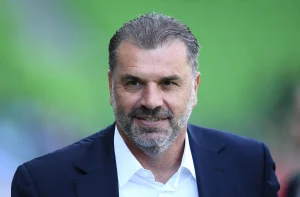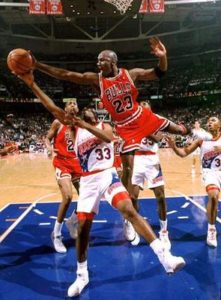Is there are greater waste of time in the world of sport than in listening to post match player and coach interviews. Normally, very little is revealed. Cliches, complaints about officials and restating of the bleedingly obvious abound. It was refreshing to see a coach interview, earlier this week, that revealed clear insight into a prominent coach’s coaching philosophy.

Celtic football coach Ange Postecoglou revealed three reasons why he is a great coach in his post Scottish League Cup victory interview last week. Any coach, of any sport, who aspires to greatness, should take a listen to this interview. Don’t get caught up looking for strategic or tactical tips… or even insider thoughts on player selection and substitution. Of course, these things are critically important, but lots of professional coaches (who are not particularly good coaches) do these things well. In this interview Postecoglou goes deeper and reveals three important elements of what he tries to provide his teams so that they can be as good as they can be.
SIT DOWN AND SHUT UP!
The first one is a cracker. Have you ever watched micro-managing soccer coaches screaming out instructions to players on the field (that even come down to the detail of whether to perform a back pass, a close lateral pass or to pass the ball forward) and wondered why the hell the idiot doesn’t just sit down and shut up? I have. Telling players what to do from the sidelines goes against the Postecoglou approach.

In response to a question about why his players changed their style of game at various times in the match and moved away from what Celtic normally do well, Postecoglou replied, “I’ve gotta leave those decisions to the players. They’ve got the best feel out there on the ground and I let them take that responsibility.”
A coach’s job is to prepare his players to deal with the possible eventualities of any game on the practice pitch and if the players are not ready to accept their responsibility to make the decisions on the playing field it’s too late for coach to start calling out detailed instructions on game day. The players have to execute the match plan… or even to implement alternative strategies if Plan A needs adjustments… but, as Postecoglou says, the players need to make these call on the field. Of course, some suggestions for adjustments can be passed out through players grabbing drinks during play stoppages or at half time but, in the end, it is the players who are paid (and coached) to make these decisions.
The ranting coaches who think that players are listening to their sideline instructions are deluding themselves. Players have teammates, opponents, the ball, the circumstances of the game, their own thoughts, the noise of the crowd, and the weather/field conditions to deal with and noise coming from the technical area is just that. Noise! When a football player is in possession of the ball they have dozens of options at their disposal that, when summarized, break down into passing options, shooting options, and taking their defender on, one-on-one, options. The power of a player holding multiple threats/options against their opponent is that the opposition have no idea about what the attacking player is going to do. Because they don’t know what will happen next, defenders have to adjust their defensive strategies accordingly. Expecting players to respond to verbal instructions called out by a coach is not only interrupting the attacking players thinking and flow but it is also giving the opposition defenders the inside information on what is going to happen next. That makes life extra easy for defenders and much more difficult for the attacking team.

ATTACKERS SHOULD DEFEND
Another approach of Postecoglou’s that doesn’t get attention from many coaches was revealed when he was complimented on how well his forwards had played. Postecoglou’s response was, “Our attacking players are so important to our defensive setup.”
There are outstanding athletes in a range of different sports that think that their role is to be their team’s offensive powerhouse only, and that defensive roles should be left to defensive players. The mighty Chicago Bulls multiple championship winning basketball teams of the 1990s are often thought of as being brilliant offensively. They were. But among their starters they had three of the greatest NBA defenders of all time in Mike Jordan, Scottie Pippen (both renowned as attackers), and Dennis Rodman. The Bulls would not have been half the basketball team they were if their best attacking players were not also brilliant defenders. The same applies in football… and Postecoglou knows it.
Think back to the last Soccer World Cup. Leo Messi was brilliant. Often his brilliance as a footballer is shown with his skill at shooting and with his prowess at ball-handling. That was again true as he captained Argentina to their victory. However, at this championship Messi’s brilliance went far beyond his normal sparkling goal-scoring attacking skill. Messi also pulled his superb playmaking and defending skills out of his box of tricks. Messi amassed multiple “expected goals” and “goal assists” to go along with his actual goals… and possibly even more importantly, Argentina was at their lethal best when Messi and his fellow forwards terrorized opposing defenders by pressing them time and time again.

A significant element of Celtic’s success so far this season has been in the relentless energy and defensive mindset of its forwards. Not all great sports teams have defensively-minded attackers, but many do. The very best teams have great attacking players who can also press.
START QUESTIONNING WHY THEY ARE DOING WHAT THEY ARE DOING
Postecoglou takes his coaching role seriously. He is open about the pressure he feels to lead his team to championships and trophies. He knows that his players, his club, the team’s supporters are all deeply invested in positive outcomes. Given that Celtic’s season still has a long way to go, and more trophies are expected of the coach and team, one would think that he would be single-mindedly wanting to push the players on to the next game now that their first hurdle for the season is over. One would think that the pressure to perform might cause Postecoglou to urge the players to forget their first victory and start working hard for the next. It doesn’t!
When Postecoglou was asked about the likely mood in the dressing room after the League Cup victory his answer was plain.
“I think it is important that you enjoy these moments… and I let them enjoy it…. because you are going to ask them to front up again on Tuesday and in the back of my mind…whatever happens tonight… I know we have St Mirren on Tuesday away… and that’s not an easy trip… but if I start talking to them about that, and they don’t enjoy this, they are going to start questioning why they are doing what they are doing.”

Despite his relief at getting past the first hurdle of the season and his desire to get on with planning for the next hurdle Postecoglou knows that he has no right to expect his team to keep on working as hard as they can and giving as much as they do if they are not allowed to appreciate their moments of success. In the end, he is a people person. There has to be a point to winning championships. There are rewards for winning trophies. Money. Glory. Fame. But the biggest reward of all is joy at receiving a return for effort made. Postecoglou might want to get on with preparing for the next challenge, but he knows his team deserve to experience the joy they have worked for. Otherwise, why would they bother playing.
For me, Ange Postecoglou is a way better coach than many people in more prestigious and more highly paid coaching roles throughout the world of sport. In fact, he could probably jump over to another sport and still do well. It wouldn’t take him long to develop technical and tactical expertise in another sport and his people skills (the most import part of coaching) are ready to go.
See the full interview attached below.
(85) Ange Postecoglou gives in-depth studio interview after winning Viaplay Cup – YouTube

Leave a Reply